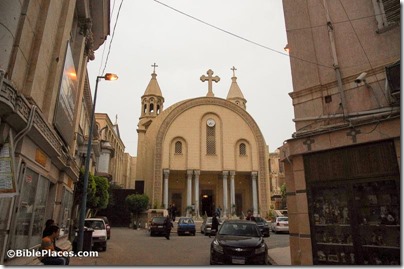At last month’s meeting of the Evangelical Theological Society, Mark Wilson suggested in a lunch gathering sponsored by Tutku Tours that Paul’s original destination on his first journey was not Galatia but Alexandria. This talk was based on an article that he co-authored with Thomas W. Davis that is available at the website of Pharos Journal of Theology. I thought that a brief sketch of their argument might be of interest to readers here.
The discovery that the proconsul Sergius Paulus hailed from Antioch near Pisidia has previously led to speculation that it was his influence that led Paul and Barnabas to travel there from Paphos. This seems even more reasonable given an understanding of the island of Cyprus. Paphos had strong ties with Alexandria, a situation encouraged by the prevailing winds which made sailing south from Paphos the norm, but sailing north to Perga unusual. If Paul had been intending to head north, Wilson argues that he would have traveled not to Paphos but to Cyprus’s northern coast.
John Mark’s desertion at Perga also may suggest that Paul’s plan had changed. With the new itinerary, Mark may have felt freed from his commitment to serve the team. Later Paul and Barnabas parted ways because of their disagreement over Mark, and Barnabas took his cousin back to Cyprus. It could well be that from there Barnabas and Mark continued on to the original destination of Alexandria.
That Mark did missionary work in Alexandria and North Africa is supported by his Gospel and church tradition. In Mark 15:21, the writer mentions Simon of Cyrene (in North Africa) and his sons Alexander and Rufus, a comment that suggests personal acquaintance. The church historian Eusebius writes that Mark started the church in Alexandria and was later martyred there. His tomb is located in Saint Mark’s Coptic Orthodox Cathedral in Alexandria. This suggests that Mark did indeed spend time here, and it may support the theory that Paul’s original destination was Alexandria. As for why Paul never traveled to this city, given that it held one of the largest Jewish populations in the world, it may be that by the time that Paul turned his gaze back in that direction, he recognized that this was no longer an area “where Christ was not known” and so he opted to travel elsewhere.
You can read the full argument of Davis and Wilson in their journal article. You might also enjoy Wilson’s 2016 article in Adalya, “Saint Paul in Pamphylia: Intention, Arrival, Departure,” available through his academia page.
